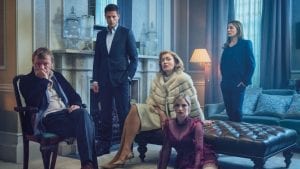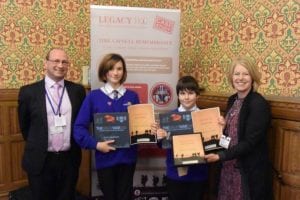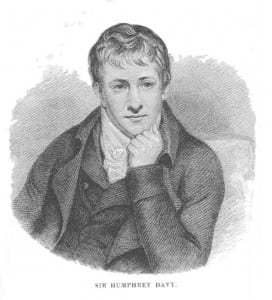From blurred lines to legal loop holes: how McMafia presents globalised entrepreneurship
By ucypndo, on 15 February 2018
Written by Natasha Downes, Media Relations Manager, UCL
The BBC drama McMafia has been the talk of the moment. So much so, that Security Minister Ben Wallace recently admitted to exploiting the success of the programme to raise public awareness of transnational crime, and announce that oligarchs would have to explain the sources of their income.

When government officials jump on a fictional TV drama to announce a crackdown on Russian oligarchs, the implication is that Russian’s really are at the heart of organised crime. A message further reinforced by media headlines such as ‘McMafia is a documentary, not a drama’.
But is McMafia really art imitating life?
On Wednesday 7 February at the Darwin Lecture Theatre of UCL, I attended McMafia: The Reality, chaired and organised by Dr Ben Noble (UCL School of Slavonic and East European Studies), to hear four academics he brought together discuss the scope of whether McMafia is a work of fiction or a work of reality.
Dr Mark Galeotti (Institute of International Relations, Prague) opened up the session by discussing the origins of the emblematic Russia mafia narrative. He talked of the ‘original gangster’ which many associate with the Chechens due to the successful scaling of their franchise of fear.
With the break-up of the Soviet Union in the late 1990s many newly rich oligarchs moved their money somewhere safe, and this is more or less, when the boundaries between business, crime and politics became imperceptible.
But this narrative of mafia is not so simple, because organised crime is essentially transnational. It may happen in Russia, but it also takes place all over the world. Businessmen and businesswomen, gangsters and corrupt state representatives operate within their own districts and national networks, and link up to form an international system of organised crime. Dr Alexander Kupatadze (Kings, Russia Institute) calls this the continuous loop of transnational trade.
In McMafia, Russians are depicted as the wholesalers; the one-stop-shop for criminality. They are the service providers blending upper world legal forces. According to Dr Philippa Hetherington (UCL School of Slavonic and East European Studies) this is a narrative that exploits negative stereotypes. Speaking on the panel she called for a more critical viewer. She highlighted how easily McMafia slips into worn stereotypes of Slavic women being trafficked by Russian men of Jewish descent to the ‘Middle East’. When in fact sex trafficking is a global problem, affecting women of all nationalities.
Dr Hetherington warns of the dangers of allowing these stereotypes to prevail. These are what she calls cultural and radicalised stereotypes, which feed into the notion of otherness about Russia and the Middle East. It negatively reinforces the trope that foreigners bring us problems.
Professor Alena Ledeneva (UCL School of Slavonic and East European Studies) attributed this to the media’s difficulty in communicating complexity. Speaking on the panel, she carefully peeled away the narrative; exploring what McMafia alludes to rather than explicitly portrays.
Professor Ledeneva discussed how McMafia arouses the tensions of globalisation. Alex, McMafia’s central character, handles global transactions from his almost clinical London office, but he also travels and has a lot of international partners. So, she asks, why do we refer to Russians?
McMafia is a series that highlights what Professor Ledeneva calls the political roof of organised crime. The monopoly of legitimate violence. The blurred lines of globalised entrepreneurship – where what we see may be unethical and immoral but is in fact ‘legal’. Here we see that organised crime has surpassed the capability and capacity of law enforcement, and it’s a difficult message for audiences to swallow.
Professor Ledeneva seemed to suggest that modern capitalism depicted in McMafia, and the real world City of London which we associate Alex with, doesn’t provide a view on morality.
The McMafia event helped the audience to think more critically about the grey areas. The line between formal and informal, family and business, strategies of survival vs strategies of the system. In McMafia Alex says he is a broker for survival, but he is also about competitive advantage and creating a level playing field. Strategy is essential for the successful operation of McMafia.
We travel between a set of standards which are fluid, and choice is a central motif of the McMafia narrative. Arguably Alex has a choice, many choices in fact, but as Professor Ledeneva highlights these are complex choices, and ones in which social structures and cultures may come into play.
These attempts to contextualise McMafia help us to better understand individuals but also the system of organised crime. Professor Galeotti importantly emphasised that we mustn’t conflate organised crime with corruption; the people at the top moving money don’t sit down with gangsters despite what McMafia portrays.
McMafia is gripping television at its finest, and academic insight helps to remind us that we should be careful blurring fiction with reality, because the reality is always more complex.
Links
- UCL School of Slavonic and East European Studies
- Dr Ben Noble’s academic profile
- Professor Alena Ledeneva’s academic profile
- Dr Philippa Hetherington’s academic profile
 Close
Close




